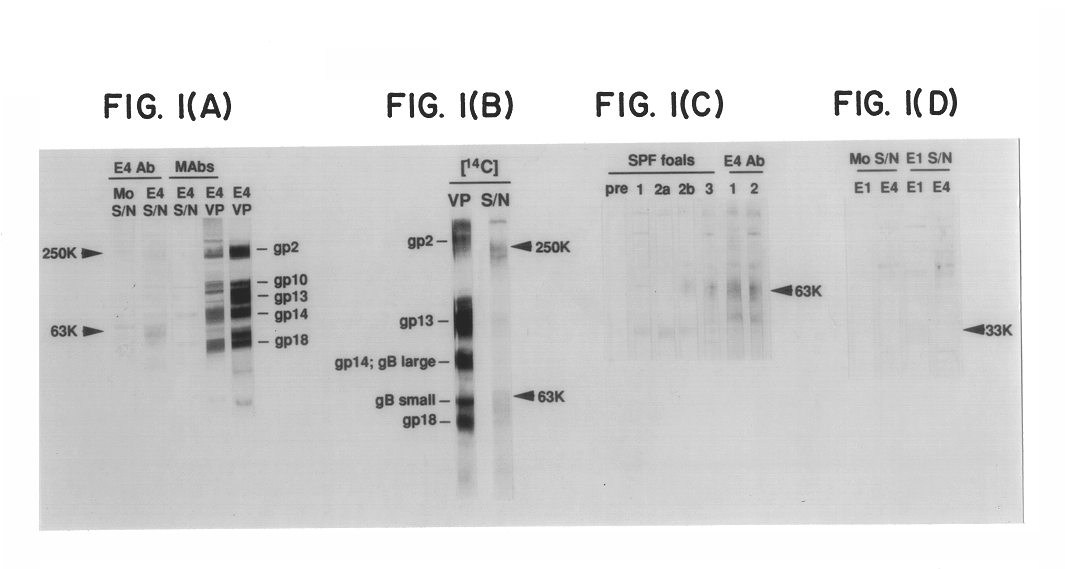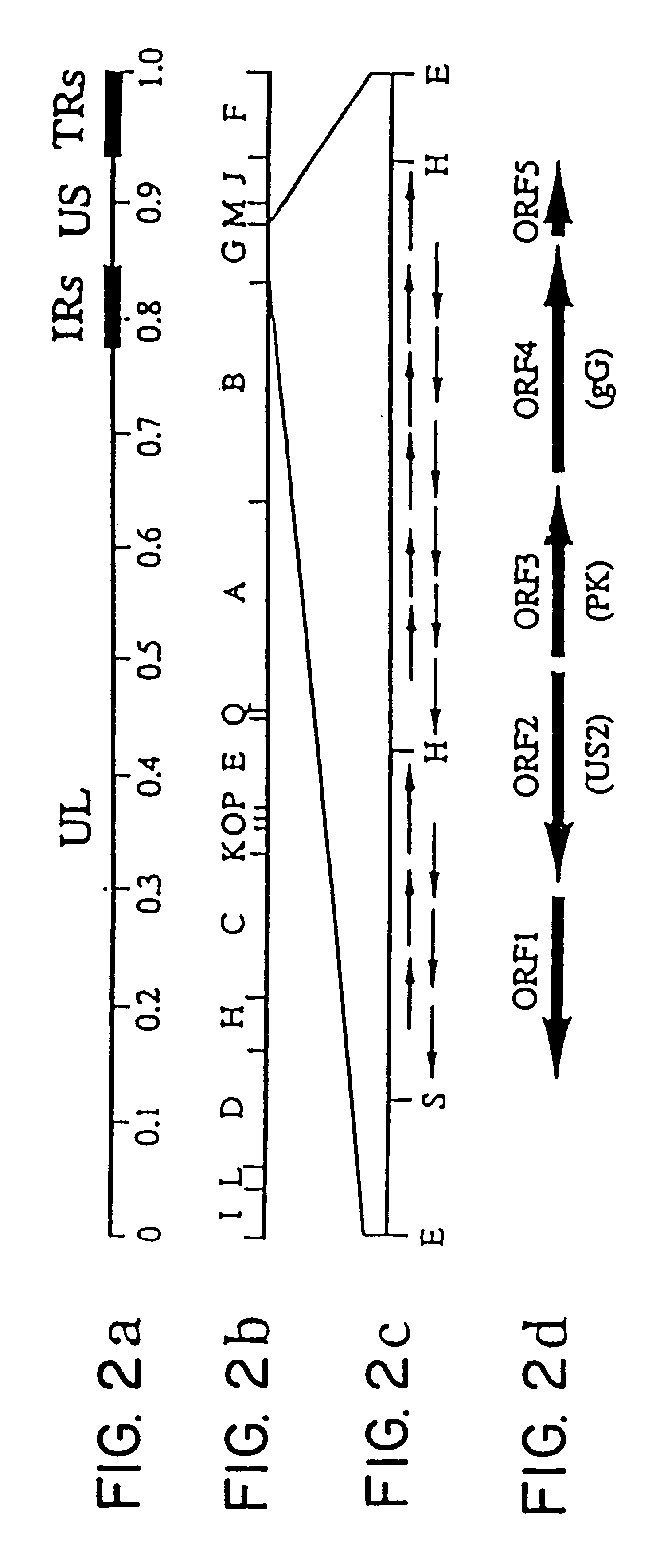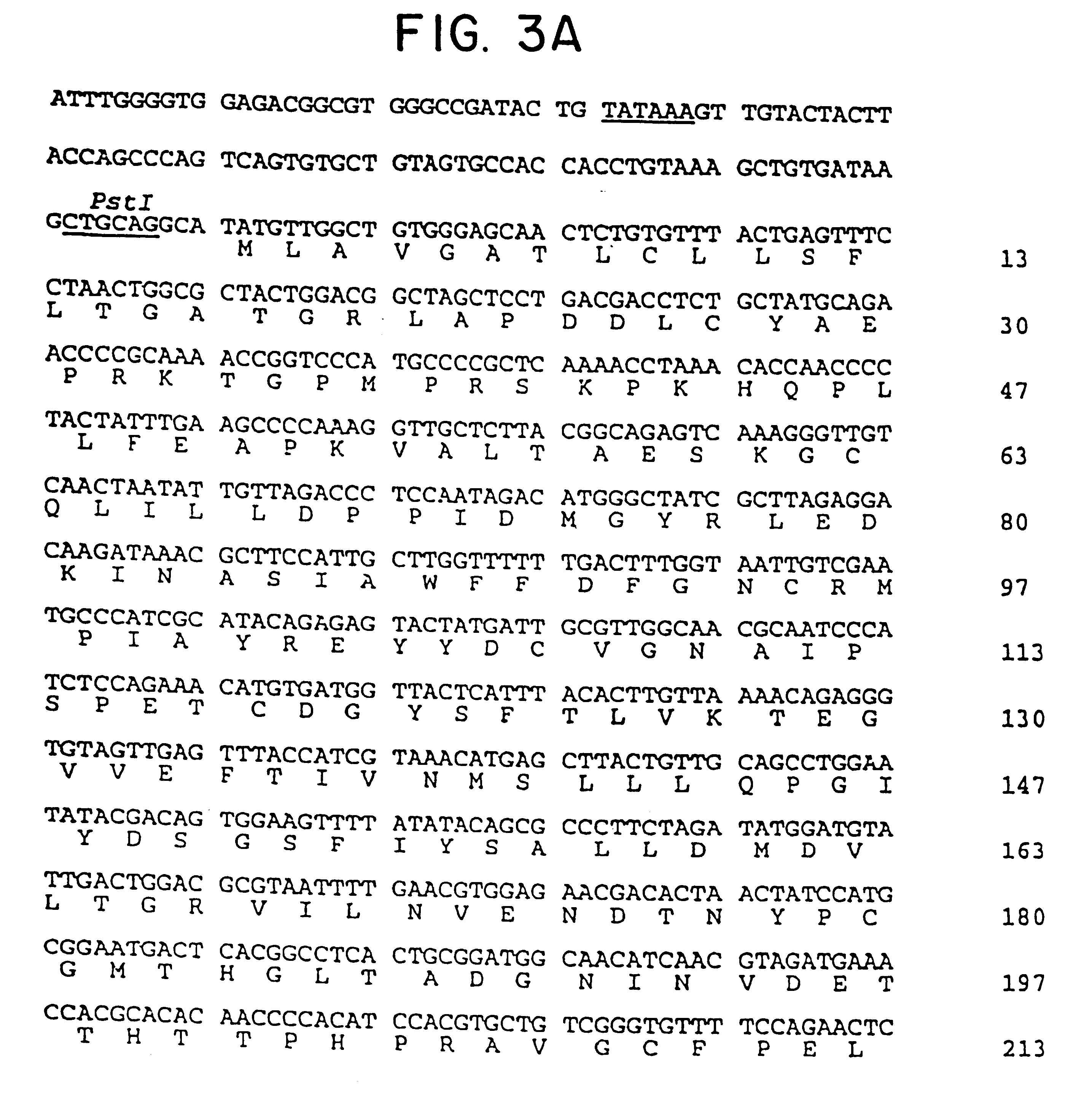Equine herpesvirus glycoproteins
a glycoprotein and herpes virus technology, applied in the field of type specific glycoproteins, can solve the problems of affecting the health of horses, requiring treatment or dying, and requiring a further bout of respiratory disease, and achieve the effect of constant rocking
- Summary
- Abstract
- Description
- Claims
- Application Information
AI Technical Summary
Benefits of technology
Problems solved by technology
Method used
Image
Examples
Embodiment Construction
Identification of Secreted, Type-specific Glycoprotein(s) of EHV4
EHV4 and EHV1 infected cell culture supermatants were examined for the presence of secreted viral proteins. FIG. 1a shows a Western blot of EHV4 infected cell culture supernatant and mock infected cell culture supernatant probed with a pool of post-EHV4 horse sera. An immunodominant region is evident in the EHV4 supernatant at approximately 200K and 63K while no such proteins were seen in the mock supernatant. The supernatant proteins were also probed with a pool of MAbs directed to gp2, gp10, gp14 (large gB subunit) and gp18 (gD) (FIG. 1a). Only when the membranes were left in TMB substrate for a prolonged period could these proteins be visualized in the supernatant, indicating that they were all present in low abundance. Nevertheless, gp2 appeared co-migratory with the larger of the secreted products while none of the other three glycoproteins was co-migratory with the 63K secreted product. The small subunit of the g...
PUM
| Property | Measurement | Unit |
|---|---|---|
| volumes | aaaaa | aaaaa |
| pH | aaaaa | aaaaa |
| total volume | aaaaa | aaaaa |
Abstract
Description
Claims
Application Information
 Login to View More
Login to View More - R&D
- Intellectual Property
- Life Sciences
- Materials
- Tech Scout
- Unparalleled Data Quality
- Higher Quality Content
- 60% Fewer Hallucinations
Browse by: Latest US Patents, China's latest patents, Technical Efficacy Thesaurus, Application Domain, Technology Topic, Popular Technical Reports.
© 2025 PatSnap. All rights reserved.Legal|Privacy policy|Modern Slavery Act Transparency Statement|Sitemap|About US| Contact US: help@patsnap.com



